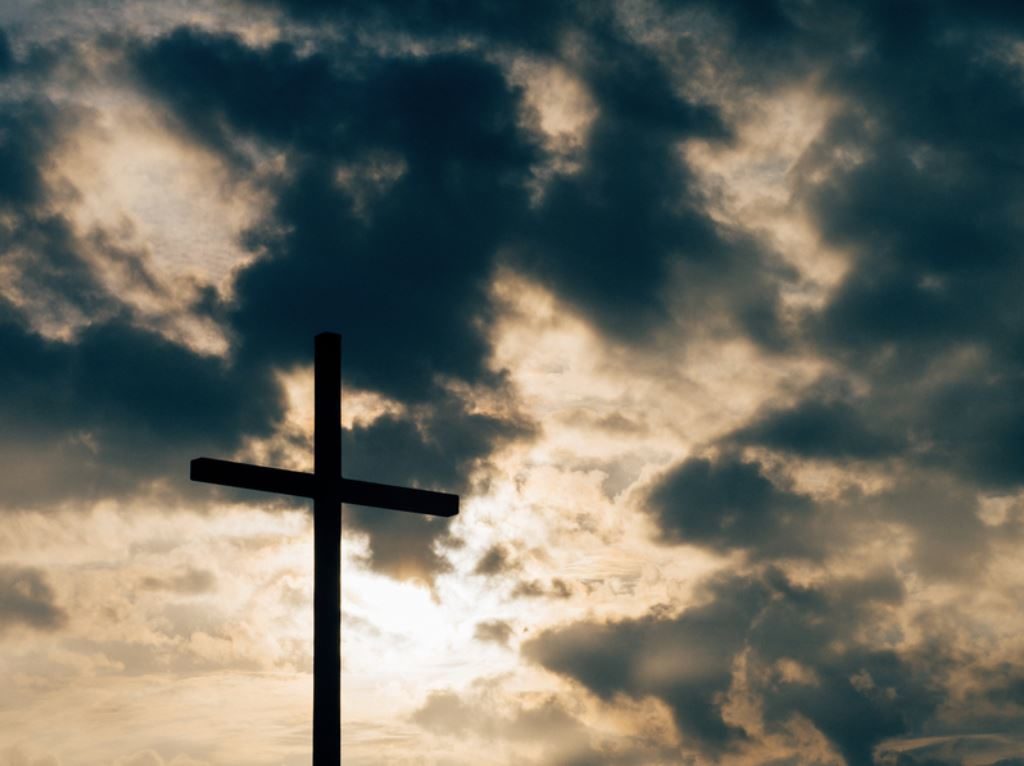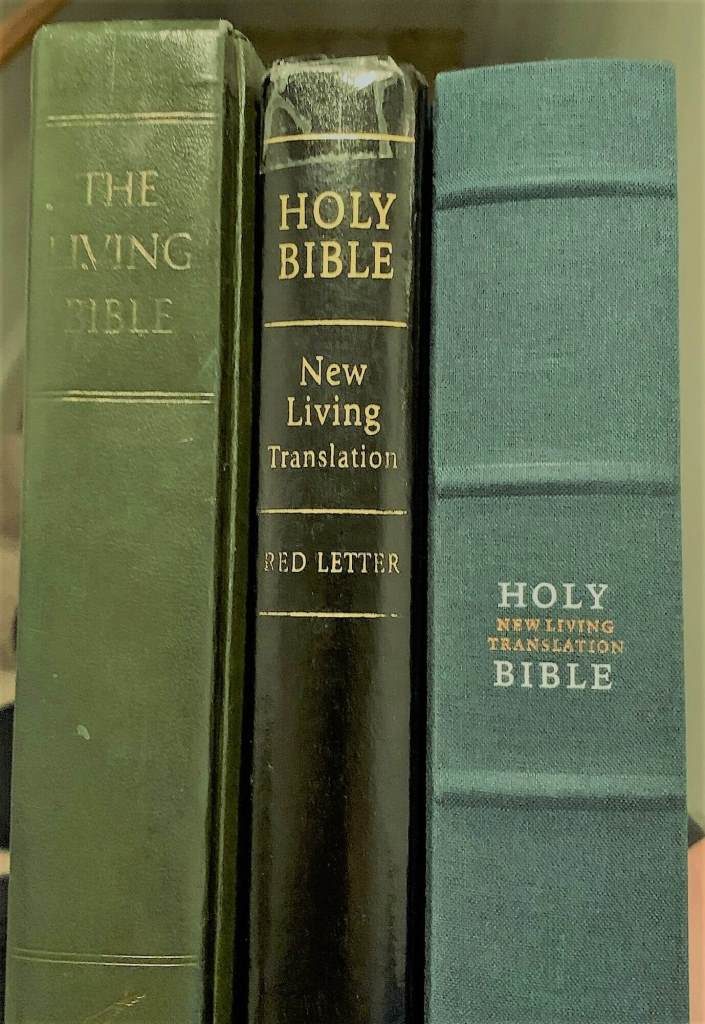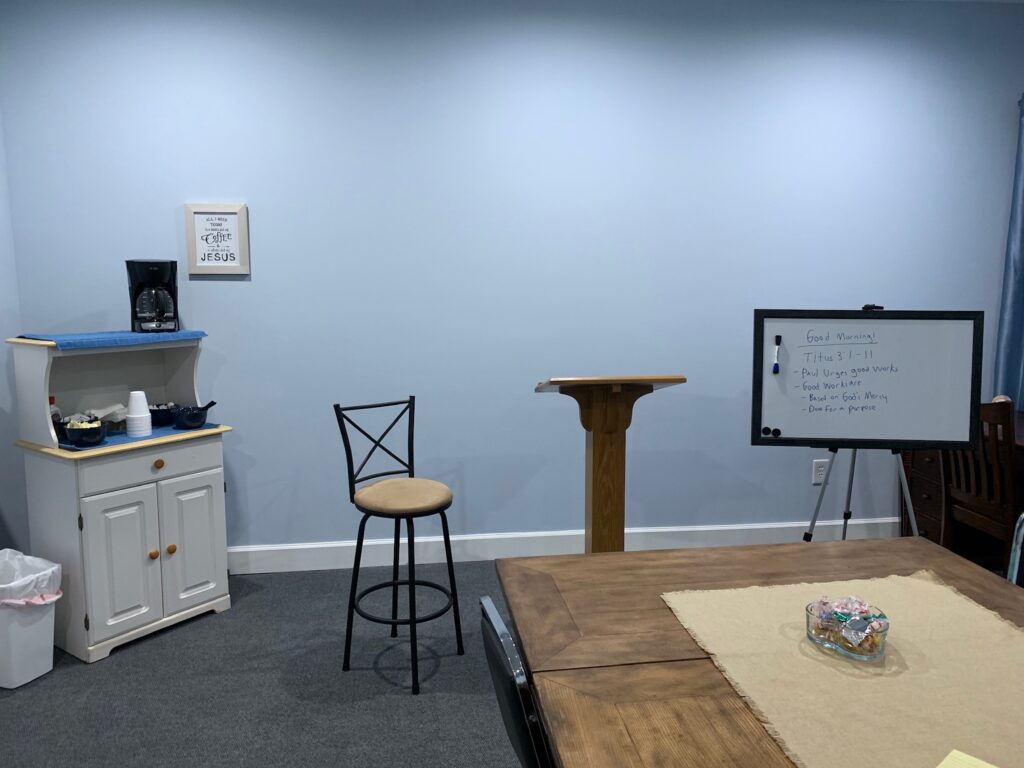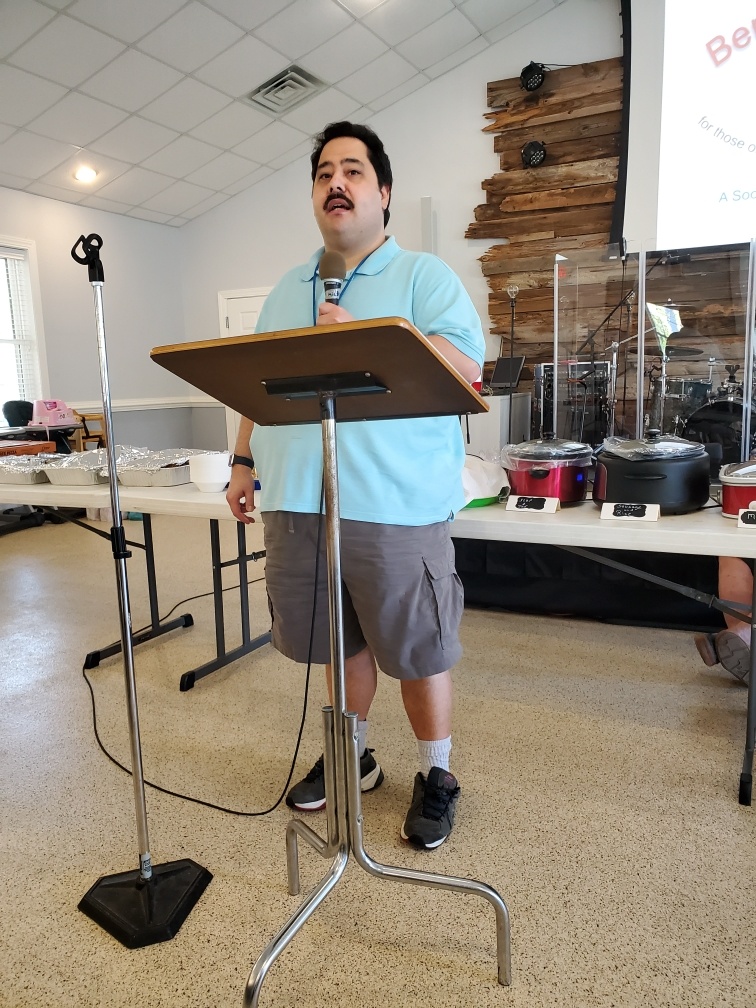Reading from May 7th in the One Year Pray for America Bible
Lord, Hannah understood exactly who you are. When she prayed, “No one is holy like the Lord! There is no one besides you,” she nailed it (1 Samuel 2:2). May all who search for you—the powerful and the humble— recognize who you really are! Amen.
Prayer Prompt
1 SAMUEL 1:1–2:21
There was a man named Elkanah who lived in Ramah in the region of Zuph in the hill country of Ephraim. He was the son of Jeroham, son of Elihu, son of Tohu, son of Zuph, of Ephraim. Elkanah had two wives, Hannah and Peninnah. Peninnah had children, but Hannah did not.
Each year Elkanah would travel to Shiloh to worship and sacrifice to the Lord of Heaven’s Armies at the Tabernacle. The priests of the Lord at that time were the two sons of Eli—Hophni and Phinehas. On the days Elkanah presented his sacrifice, he would give portions of the meat to Peninnah and each of her children. And though he loved Hannah, he would give her only one choice portion because the Lord had given her no children. So Peninnah would taunt Hannah and make fun of her because the Lord had kept her from having children. Year after year it was the same—Peninnah would taunt Hannah as they went to the Tabernacle. Each time, Hannah would be reduced to tears and would not even eat.
“Why are you crying, Hannah?” Elkanah would ask. “Why aren’t you eating? Why be downhearted just because you have no children? You have
me—isn’t that better than having ten sons?”
Once after a sacrificial meal at Shiloh, Hannah got up and went to pray. Eli the priest was sitting at his customary place beside the entrance of the Tabernacle. Hannah was in deep anguish, crying bitterly as she prayed to the Lord. And she made this vow: “O Lord of Heaven’s Armies, if you will look upon my sorrow and answer my prayer and give me a son, then I will give him back to you. He will be yours for his entire lifetime, and as a sign that he has been dedicated to the Lord, his hair will never be cut.”
As she was praying to the Lord, Eli watched her. Seeing her lips moving but hearing no sound, he thought she had been drinking. “Must you come here drunk?” he demanded. “Throw away your wine!”
“Oh no, sir!” she replied. “I haven’t been drinking wine or anything stronger. But I am very discouraged, and I was pouring out my heart to the Lord. Don’t think I am a wicked woman! For I have been praying out of great anguish and sorrow.”
“In that case,” Eli said, “go in peace! May the God of Israel grant the request you have asked of him.”
“Oh, thank you, sir!” she exclaimed. Then she went back and began to eat again, and she was no longer sad.
The entire family got up early the next morning and went to worship the Lord once more. Then they returned home to Ramah. When Elkanah slept with Hannah, the Lord remembered her plea, and in due time she gave birth to a son. She named him Samuel, for she said, “I asked the Lord for him.”
The next year Elkanah and his family went on their annual trip to offer a sacrifice to the Lord and to keep his vow. But Hannah did not go. She told her husband, “Wait until the boy is weaned. Then I will take him to the Tabernacle and leave him there with the Lord permanently.”
“Whatever you think is best,” Elkanah agreed. “Stay here for now, and may the Lord help you keep your promise.” So she stayed home and nursed the boy until he was weaned. Hannah took him to the Tabernacle in Shiloh. They brought along a three-year-old bull for the sacrifice and a basket of flour and some wine. After sacrificing the bull, they brought the boy to Eli. “Sir, do you remember me?” Hannah asked. “I am the very woman who stood here several years ago praying to the Lord. I asked the Lord to give me this boy, and he has granted my request. Now I am giving him to the Lord, and he will belong to the Lord his whole life.” And they worshiped the Lord there.
Then Hannah prayed:
“My heart rejoices in the Lord!
The Lord has made me strong.
Now I have an answer for my enemies;
I rejoice because you
rescued me.
No one is holy like the Lord!
There is no one besides you;
there is no Rock like our God.
“Stop acting so proud and haughty!
Don’t speak with such arrogance!
For the Lord is a God who knows what you have done;
he will judge your actions. The bow of the mighty is now broken,
and those who stumbled are now strong.
Those who were well fed are now starving, and those who were starving are now full.
The childless woman now has seven children,
and the woman with many children wastes away.
The Lord gives both death and life;
he brings some down to the grave but raises others up.
The Lord makes some poor and others rich;
he brings some down and lifts others up.
He lifts the poor from the dust and the needy from the garbage dump.
He sets them among princes,
placing them in seats of honor.
For all the earth is the Lord’s,
and he has set the world in order.
“He will protect his faithful ones,
but the wicked will disappear in darkness.
No one will succeed by strength alone.
Those who fight against the Lord will be shattered.
He thunders against them from heaven;
the Lord judges throughout the earth.
He gives power to his king;
he increases the strength of his anointed one.”
Then Elkanah returned home to Ramah without Samuel. And the boy served the Lord by assisting Eli the priest.
Now the sons of Eli were scoundrels who had no respect for the Lord or for their duties as priests. Whenever anyone offered a sacrifice, Eli’s sons would send over a servant with a three-pronged fork. While the meat of the sacrificed animal was still boiling, the servant would stick the fork into the pot and demand that whatever it brought up be given to Eli’s sons. All the Israelites who came to worship at Shiloh were treated this way. Sometimes the servant would come even before the animal’s fat had been burned on the altar. He would demand raw meat before it had been boiled so that it could be used for roasting.
The man offering the sacrifice might reply, “Take as much as you want, but the fat must be burned first.” Then the servant would demand, “No, give it to me now, or I’ll take it by force.” So the sin of these young men was very serious in the Lord’s sight, for they treated the Lord’s offerings with contempt.
But Samuel, though he was only a boy, served the Lord. He wore a linen garment like that of a priest. Each year his mother made a small coat for him and brought it to him when she came with her husband for the sacrifice. Before they returned home, Eli would bless Elkanah and his wife and say, “May the Lord give you other children to take the place of this one she gave to the Lord.” And the Lord blessed Hannah, and she conceived and gave birth to three sons and two daughters. Meanwhile, Samuel grew up in the presence of the Lord.
JOHN 5:1-23
Afterward Jesus returned to Jerusalem for one of the Jewish holy days. Inside the city, near the Sheep Gate, was the pool of Bethesda, with five covered porches. Crowds of sick people—blind,lame, or paralyzed—lay on the porches. One of the men lying there had been sick for thirty-eight years. When Jesus saw him and knew he had been ill for a long time, he asked him, “Would you like to get well?”
“I can’t, sir,” the sick man said, “for I have no one to put me into the pool when the water bubbles up. Someone else always gets there ahead of me.” Jesus told him, “Stand up, pick up your mat, and walk!” Instantly, the man was healed! He rolled up his sleeping mat and began walking! But this miracle happened on the Sabbath, so the Jewish leaders objected. They said to the man who was cured, “You can’t work on the Sabbath! The law doesn’t allow you to carry that sleeping mat!”
But he replied, “The man who healed me told me, ‘Pick up your mat and walk.’”
“Who said such a thing as that?” they demanded.
The man didn’t know, for Jesus had disappeared into the crowd. But afterward Jesus found him in the Temple and told him, “Now you are well; so stop sinning, or something even worse may happen to you.” Then the man went and told the Jewish leaders that it was Jesus who had healed him. So the Jewish leaders began harassing Jesus for breaking the Sabbath rules. But Jesus replied, “My Father is always working, and so am I.” So the Jewish leaders tried all the harder to find a way to kill him. For he not only broke the Sabbath, he called God his Father, thereby making himself equal with God.
So Jesus explained, “I tell you the truth, the Son can do nothing by himself. He does only what he sees the Father doing. Whatever the Father does, the Son also does. For the Father loves the Son and shows him everything he is doing. In fact, the Father will show him how to do even greater works than healing this man. Then you will truly be astonished. For just as the Father gives life to those he raises from the dead, so the Son gives life to anyone he wants. In addition, the Father judges no one. Instead, he has given the Son absolute authority to judge, so that everyone will honor the Son, just as they honor the Father. Anyone who does not honor the Son is certainly not honoring the Father who sent him.”
PSALM 105:37-45
The Lord brought his people out of Egypt, loaded with silver and gold;
and not one among the tribes of Israel even stumbled.
Egypt was glad when they were gone,
For they feared them greatly.
The Lord spread a cloud above them as a covering
and gave them a great fire to light the darkness.
They asked for meat, and he sent them quail;
he satisfied their hunger with manna—bread from heaven.
He split open a rock, and water gushed out
to form a river through the dry wasteland.
For he remembered his sacred promise
to his servant Abraham.
So he brought his people out of Egypt with joy,
his chosen ones with rejoicing.
He gave his people the lands of pagan nations,
and they harvested crops that others had planted.
All this happened so they would follow his decrees
and obey his instructions.
Praise the Lord!
PROVERBS 14:28-29
A growing population is a king’s glory;
a prince without subjects has nothing.
People with understanding control their anger;
a hot temper shows great foolishness.
Want to read more? The December 2019 Read With Us plan is featuring the One Year Pray for America Bible. Every week you will receive links to the reading for the each day of the week. Sign up and join us.

























Recent Comments